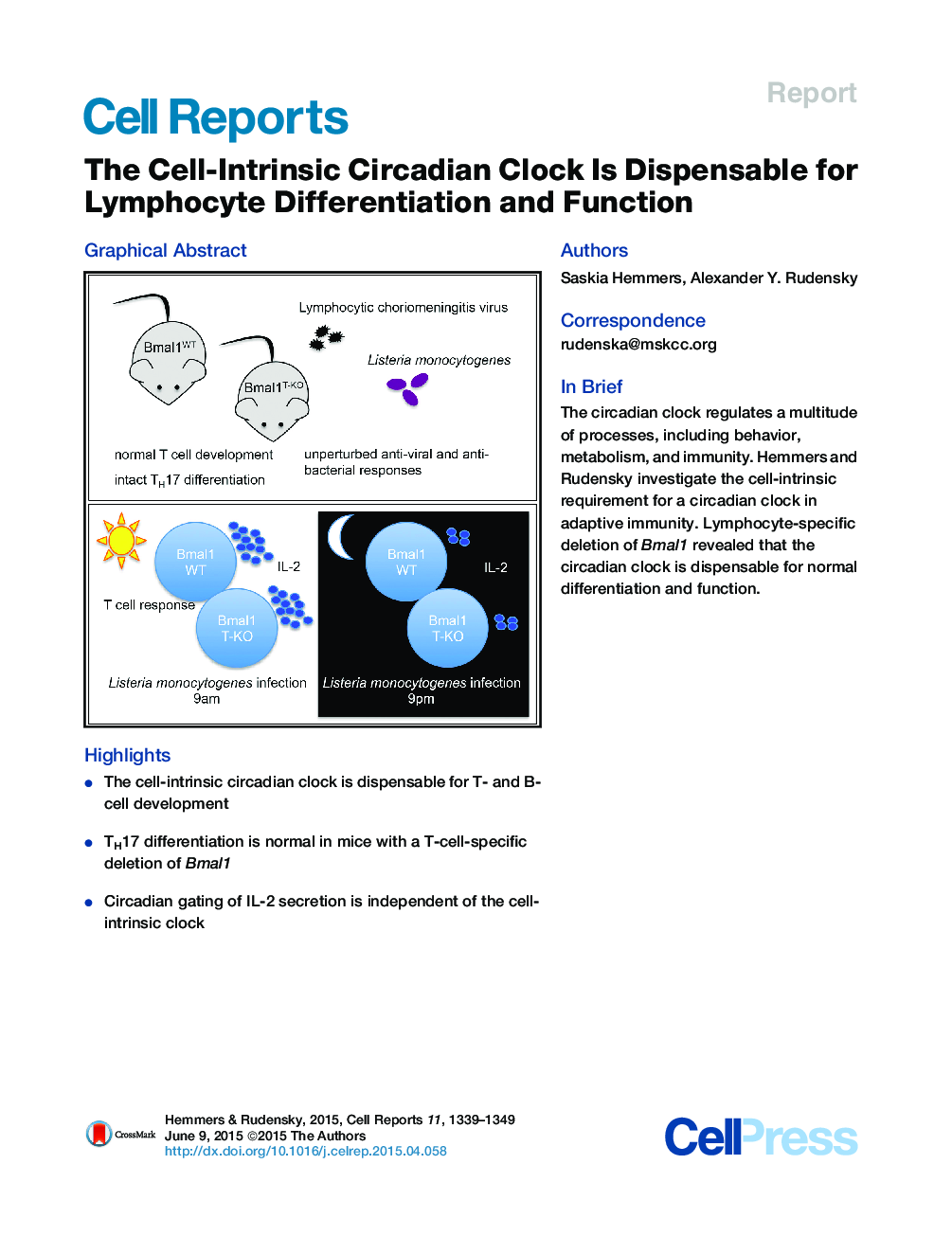| Article ID | Journal | Published Year | Pages | File Type |
|---|---|---|---|---|
| 2041937 | Cell Reports | 2015 | 11 Pages |
•The cell-intrinsic circadian clock is dispensable for T- and B-cell development•TH17 differentiation is normal in mice with a T-cell-specific deletion of Bmal1•Circadian gating of IL-2 secretion is independent of the cell-intrinsic clock
SummaryCircadian rhythms regulate many aspects of physiology, ranging from sleep-wake cycles and metabolic parameters to susceptibility to infection. The molecular clock, with transcription factor BMAL1 at its core, controls both central and cell-intrinsic circadian rhythms. Using a circadian reporter, we observed dynamic regulation of clock activity in lymphocytes. However, its disruption upon conditional Bmal1 ablation did not alter T- or B-cell differentiation or function. Although the magnitude of interleukin 2 (IL-2) production was affected by the time of bacterial infection, it was independent of cell-intrinsic expression of BMAL1. The circadian gating of the IL-2 response was preserved in Bmal1-deficient T cells, despite a slight reduction in cytokine production in a competitive setting. Our results suggest that, contrary to the prevailing view, the adaptive immune response is not affected by the cell-intrinsic clock but is likely influenced by cell-extrinsic circadian cues operating across multiple cell types.
Graphical AbstractFigure optionsDownload full-size imageDownload as PowerPoint slide
